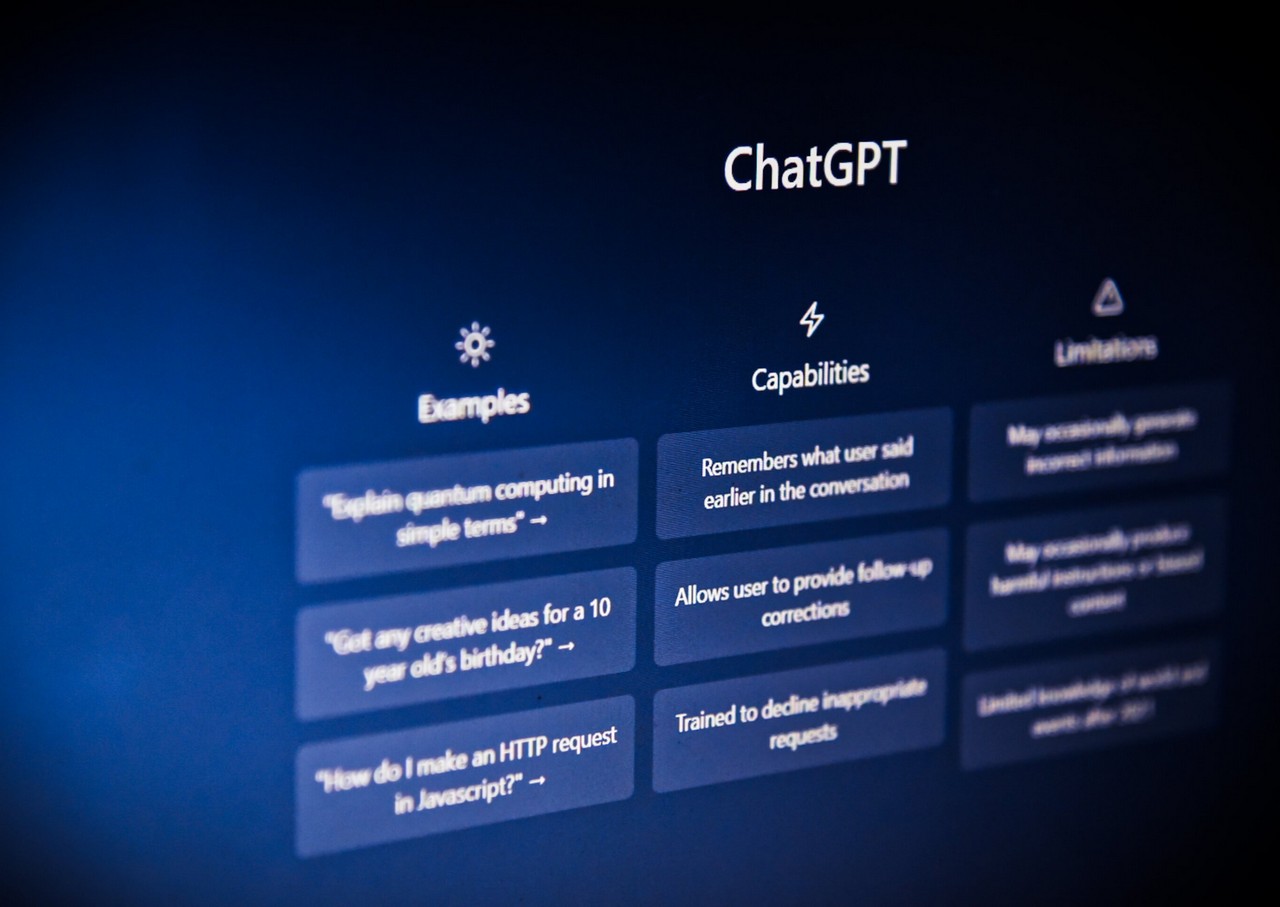Almost half of white-collar professionals have tried utilizing ChatGPT to assist with their work, in line with a current survey of greater than 10,000 folks at blue chips equivalent to Google, JP Morgan and McKinsey. That is staggering, contemplating the AI chatbot was solely launched to the general public in November. It is doubtlessly very thrilling for the way forward for work, nevertheless it additionally brings critical dangers.
ChatGPT and different imminent rivals are a part of an extended historical past of applied sciences geared to decreasing the labor of writing. These vary from the printing press to the telegram, the typewriter, phrase processors and private computing.
AI chatbots will help overcome human limitations, together with velocity, overseas languages and author’s block—doubtlessly serving to with all the things from writing emails to stories and articles to advertising and marketing campaigns. It is an enchanting trans-human relationship wherein the AI makes use of previous human-produced texts to tell and form the writing of latest texts by different people.
Jobs involving important quantities of writing will inevitably be affected most, equivalent to journalists, tutorial researchers and coverage analysts. In all instances, AI chatbots may permit for brand spanking new information and concepts to be disseminated extra quickly. Definitely it may result in weaker, much less helpful writing, but when used to create a construction that’s completely edited by the author utilizing their very own unique concepts, it might be very helpful.
Additionally, some folks have a aggressive benefit at writing not as a result of their concepts are higher however as a result of they’re simply quicker. This is actually because they’re writing of their first language, on account of nothing greater than historic coincidence. AI chatbots may due to this fact assist make writing extra inclusive and accessible.
Downsides
However, there are worries that ChatGPT and its opponents may steal many individuals’s jobs, particularly in conventional white collar professions, although it’s extremely tough to say at this stage how many individuals will likely be affected. For instance Mihir Shukla, CEO and founding father of California-based software program firm Automation Wherever, thinks that “wherever from 15% to 70% of all of the work we do in entrance of the pc might be automated.” However a current McKinsey report means that solely about 9% of individuals should change careers. Even so, that is lots of people. Decrease to mid-level staff are more likely to be those most affected.
Linked to potential job losses is the hazard that employers will use these applied sciences to justify price financial savings by making current employees use these instruments “to do extra with much less”. Employers have traditionally used labor-saving gadgets to maximise productiveness, making folks work more durable, not smarter or higher. Computer systems and emails, for instance, have made work unending for many individuals.
Staff may now due to this fact find yourself being pressured to supply extra work. But this dangers lacking the true leap in productiveness that AI may result in. If used accurately, AI chatbots may release staff to have extra time to supply high-quality, unique work.
There are moreover considerations in regards to the human price of making AI chatbots. Kenyan employees, as an illustration, have been paid between US$1 and US$2 (80 pence to £1.60) per hour to coach OpenAI’s GPT-3 mannequin, on which ChatGPT relies. Their temporary was to make it much less poisonous by labeling 1000’s of samples of probably offensive textual content in order that the platform may study to detect violent, racist and sexist language. This was so traumatic for the employees that the contractor practically introduced the challenge to an early finish. Sadly, there’s more likely to be way more of this sort of work to return.
Lastly, AI chatbots elevate fascinating mental property points. Specifically, it is not clear who owns the work they produce. This might make it more durable for corporations or freelancers to guard their very own output, whereas additionally doubtlessly exposing them to copyright infringement claims from somebody who owned the writing that appears to have been reproduced by the AI chatbot. It is a advanced space and it very a lot stays to be seen by courts will deal with check instances.
It additionally raises questions on conditions the place the possession of a bit of labor is already in a grey space. Whereas an employer will typically personal an worker’s written work, this has not historically been the case with college teachers. Now, nevertheless, universities are searching for to make use of their energy as employers to typically be the primary house owners of teachers’ printed analysis. In the event that they succeed, they might then put strain on teachers to make use of AI chatbots to extend their degree of analysis output.
Employee-friendly AI?
A technique of coping with the hazards of heavier workloads is thru regulation. At this stage, nevertheless we fear that the authorities will set extra of an aspirational “ceiling” for what employers ought to purpose to do for workers reasonably than a clearly regulated and enforced “ground” for guaranteeing first rate work.
We should begin growing primary requirements to restrict the potential for exploiting employees. This might embody caps on the quantity of AI-assisted written work that corporations can count on of people, as an illustration. There’s clearly additionally an essential position for elevating employers’ consciousness in regards to the potential harms and advantages from these applied sciences.
It is also essential to acknowledge that the hazards are being aggravated by corporations’ deal with maximizing earnings and productiveness. This factors to the necessity for extra various work environments the place the emphasis is on offering employees with a very good high quality of life. The OECD has as an illustration been selling the “social economic system,” which encompasses employee and community-owned cooperatives. In such workplaces, instruments equivalent to ChatGPT have the potential to be extra helpful than threatening.
The excellent news is that there’s most likely a slim window earlier than these applied sciences remodel workplaces. We tried utilizing ChatGPT to write down this text and did not discover it notably helpful—although that will partly replicate our personal inexperience at prompting the chatbot. Now could be the time to acknowledge the place that is heading and get the world in control. A yr or two from now, workplaces may look very totally different.
Supplied by
The Dialog







